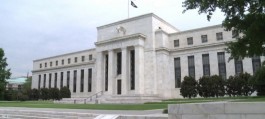The dollar settled below a three-month high during early Thursday trading, with investors scrambling to calculate when the Federal Reserve will start cutting interest rates while central bank officials comment on inflation data released Tuesday.
The yen moved away from its lowest level in three months against the dollar, which it recorded on Tuesday, despite being under new pressure this week, as data showed the Japanese economy sliding into recession and contracting unexpectedly for two consecutive quarters due to weak domestic demand.
US inflation data raised expectations that the Federal Reserve would announce its first interest rate cut in the middle of the year. The data showed that the consumer price index rose 3.1 percent in January on an annual basis, compared to expectations for a 2.9 percent rise.
The market now expects that interest rates will not be cut in March, compared with 77 percent bets a month ago that interest rate cuts would begin then, according to the CME Group's FedWatch tool.
Markets believe there is a 60 percent chance that the Federal Reserve will keep interest rates unchanged at its May meeting.
Chicago Federal Reserve Bank President Austin Goolsbee said on Wednesday that the central bank will remain on track to reach the inflation target of 2 percent, even if inflation is slightly higher than expected over the next few months.
He warned against waiting too long before lowering interest rates.
The dollar index, which measures the performance of the US currency against six major currencies, remained stable below its new three-month high of 104.97, which it touched yesterday, Wednesday, before the release of US retail sales data for January later on Thursday. In the latest trading, the index reached 104.69 points.
The yen rose 0.23 percent against the dollar at 150.26, continuing its rise after officials in Japan warned of the yen's rapid movements the previous day and despite unexpectedly weak gross domestic product numbers on Thursday.
This decline caused Japan to lose its title as the third largest economy in the world, to be replaced by Germany.
While the Australian dollar fell after a weak set of jobs data, falling 0.15 percent to $0.648.
The New Zealander also fell 0.06 percent to $0.60825.
The pound sterling recorded in its latest trading $1.2558 ahead of the release of GDP data in Britain on Thursday.
There was no significant change in the euro, settling at $1.0727.
As for cryptocurrencies, Bitcoin rose 0.67 percent to $52,120.55. It rose to $52,544.51 earlier in the session, surpassing the highest level in 25 months at $52,079, which it touched yesterday, Wednesday.
The total value invested in Bitcoin exceeded $1 trillion for the first time since November 2021.






































